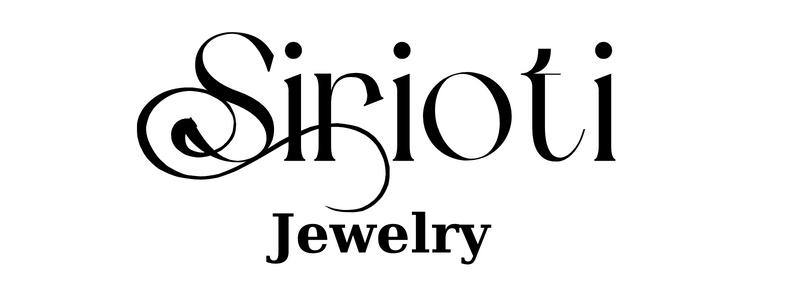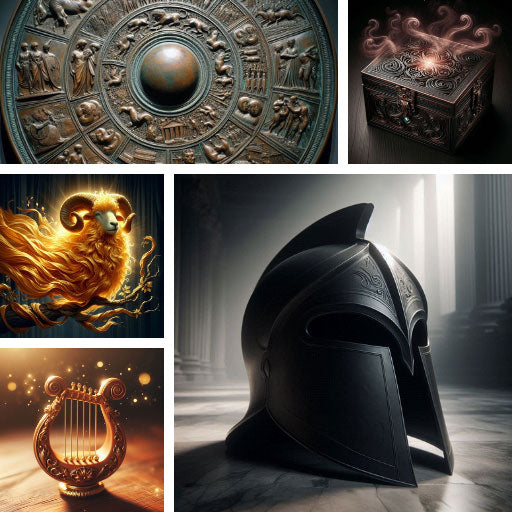Table of Contents
- The Golden Fleece
- Pandora’s Box
- Hermes' Winged Sandals (Talaria)
- The Shield of Achilles
- The Helm of Darkness (Cap of Invisibility)
- The Caduceus
- The Bow of Heracles
- The Aegis
- The Lyre of Orpheus
- The Apple of Discord
- Conclusion
Introduction
Greek mythology is filled with captivating stories of gods, heroes, and legendary creatures. Among these tales are numerous mythical objects, each imbued with unique powers and fascinating histories. From weapons of immense power to items that grant wisdom or invisibility, these objects have played pivotal roles in many mythological narratives. In this blog post, we’ll explore ten of the most intriguing Greek mythical objects and uncover the legends behind them.
1. The Golden Fleece
Legend: The Golden Fleece is a symbol of authority and kingship, originating from the fleece of a golden-haired, winged ram. Jason and the Argonauts embarked on a perilous journey to retrieve it, facing numerous challenges along the way.
Powers: The fleece is said to possess magical properties that bring prosperity and protection.

2. Pandora’s Box
Legend: Created by the gods and given to Pandora, the first woman on Earth, this box (or jar) contained all the evils of the world. Pandora’s curiosity led her to open it, releasing these evils, though hope remained inside.
Powers: Symbolizes the unforeseen consequences of human curiosity and the existence of hope amidst despair.

3. Hermes' Winged Sandals (Talaria)
Legend: Worn by Hermes, the messenger of the gods, these sandals allowed him to fly freely between the mortal and divine worlds.
Powers: Granted the ability to travel swiftly and effortlessly through air.
4. The Shield of Achilles
Legend: Forged by Hephaestus, the god of blacksmiths, this shield was used by Achilles during the Trojan War. It was described in great detail by Homer in the "Iliad."
Powers: Offered unparalleled protection and depicted the world in intricate detail.

5. The Helm of Darkness (Cap of Invisibility)
Legend: Also known as the Helm of Hades, this object granted its wearer the power to become invisible. Perseus used it to slay Medusa.
Powers: Conferred invisibility to the wearer, making them undetectable.

6. The Caduceus
Legend: The staff carried by Hermes, often depicted with two intertwined snakes and wings at the top. It has become a symbol of commerce and negotiation.
Powers: Possessed the ability to heal and restore balance.

7. The Bow of Heracles
Legend: This powerful bow belonged to Heracles (Hercules) and was later passed to Philoctetes. It played a crucial role in the Trojan War.
Powers: Known for its incredible strength and accuracy.

8. The Aegis
Legend: A protective cloak or shield associated with Zeus and Athena, often depicted as bearing the head of Gorgon Medusa.
Powers: Provided divine protection and instilled terror in enemies.
9. The Lyre of Orpheus
Legend: Orpheus, a legendary musician, played this lyre to charm all living things and even inanimate objects.
Powers: Could enchant anyone and anything with its music, calming storms and taming wild beasts.

10. The Apple of Discord
Legend: A golden apple inscribed with "To the Fairest," thrown by Eris, the goddess of discord, at the wedding of Peleus and Thetis. It led to the judgment of Paris and ultimately the Trojan War.
Powers: Its mere presence sowed discord and rivalry among the gods.
Conclusion
The mythical objects of Greek mythology are more than mere tools or treasures; they are integral to the stories that have captivated audiences for millennia. Each object carries its own tale of power, intrigue, and symbolism, reflecting the values and beliefs of ancient Greek culture.
Interested in Greek mythology ? Visit our blog here

